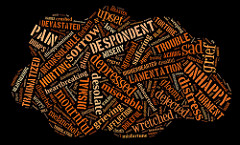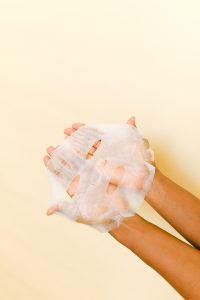Generally, it is recommended that we have at least eight hours of sleep a night. That’s a third of our 24-hours day. I don’t know about you, but I don’t always get eight hours, even if I get to bed at a reasonable time. Why do many of us have trouble sleeping? I want to address this a little closer.
“Sleep is the best medicine.” – Dalia Lama.
 Sleep is essential, and there are many health benefits. There are lots of literature on this topic and many helpful articles. Some of the advantages of a good night sleep include; rested body and rested mind, improve memory, concentration and cognitive functions, lower your blood pressure, reduces heart diseases, stress, depression and increase immunity. You will also be happy to know that a restful sleep can lead to weight loss as your body continues to produce hormones ghrelin and leptin while you enjoy your slumber.
Sleep is essential, and there are many health benefits. There are lots of literature on this topic and many helpful articles. Some of the advantages of a good night sleep include; rested body and rested mind, improve memory, concentration and cognitive functions, lower your blood pressure, reduces heart diseases, stress, depression and increase immunity. You will also be happy to know that a restful sleep can lead to weight loss as your body continues to produce hormones ghrelin and leptin while you enjoy your slumber.
 During the nocturnal hours, your body’s naturally crave sleep because your internal biological clock or the circadian rhythm is synchronised with the day/night cycle of the diurnal rhythm. The circadian rhythms determine our physical, mental and behaviour changes in the flow of the 24-hour cycle. It is essentially your internal biological body clock. Whereas the diurnal cycle is any environmental pattern that recurs every 24 hours as one full rotation, such as the day/night or the high/low tide. Thus, it can be seen as an external environmental clock.
During the nocturnal hours, your body’s naturally crave sleep because your internal biological clock or the circadian rhythm is synchronised with the day/night cycle of the diurnal rhythm. The circadian rhythms determine our physical, mental and behaviour changes in the flow of the 24-hour cycle. It is essentially your internal biological body clock. Whereas the diurnal cycle is any environmental pattern that recurs every 24 hours as one full rotation, such as the day/night or the high/low tide. Thus, it can be seen as an external environmental clock.
When these two rhythms are synchronised, your mind, body and state will benefit from nature therapy. As you sleep, your body works to repair your internal organs, muscles, cells and regenerates. Melatonin is a hormone naturally produced by the pineal gland during sleep. Deep in the brain, near the epithalamus, situated above the thalamus, is the pineal gland, also known as the ‘third eye’. Melatonin also helps to control your circadian rhythm and regulates health and healing hormones. Thus, you can heal yourself during your sleep.
There are many reasons why people experience sleeping problems from mild, acute to chronic sleep disorders such as insomnia, sleep apnea, narcolepsy, restless legs syndrome or REM sleep behaviour disorder such as sleepwalking.
 The inability to sleep or sleep well at night depends on your internal and external stressors, mental states, food that you have eaten and health condition. Many other factors also prevent us from sleeping, include anxieties, traumas and crises can interfere with our sleep habit as we lay down to rest. Unfortunately, this cacophony rings in our mind, and it can ruminate in the psyche as we sleep, becoming a nightmare that disrupts our natural healing process. If you take your woes to bed, when you close your eyes and managed to get a wink of sleep, it won’t be long before the problem invades your dreams. What you mentally think about will become your mental reality within the dream state.
The inability to sleep or sleep well at night depends on your internal and external stressors, mental states, food that you have eaten and health condition. Many other factors also prevent us from sleeping, include anxieties, traumas and crises can interfere with our sleep habit as we lay down to rest. Unfortunately, this cacophony rings in our mind, and it can ruminate in the psyche as we sleep, becoming a nightmare that disrupts our natural healing process. If you take your woes to bed, when you close your eyes and managed to get a wink of sleep, it won’t be long before the problem invades your dreams. What you mentally think about will become your mental reality within the dream state.
Many of us have trouble sleeping because we take these problems to bed with us. I’ve done it. I had a bad day and could not shake off something that happened that day. As I replayed these in my mind, in bed, they became my nightmare.
Have you ever gone to bed after an argument? Or, after emotional distress such as being made redundant, how did you sleep? Restless, I wager.
How to heal yourself in your sleep? Let me share what works for me.
- Pre-bedtime slow down
 Have a goal in mind for your bedtime (sleep time). This is a time that you want to be in bed, lights out, eyes shut and breathing easily.
Have a goal in mind for your bedtime (sleep time). This is a time that you want to be in bed, lights out, eyes shut and breathing easily.
Make your preparation for slowing down and winding down. Begin to relax.
Have a glass or bottle of water ready for bedtime, if required.
Keep other electronics blue lights out of the bedroom, as this disrupts the sleep cycle. Turn off electronic devices.
Brush your teeth and have your comfort break. I often find that washing my face often help. If you are a night-time shower person, this works, as water is soothing and calming.
Get into your PJ if you wear clothes to bed.
- Build a bedtime ritual that works for you
 I firmly believe that rituals are helpful. Have a bedtime routine and pattern that you stick to help you build a structure around your sleeping habit. I cannot stress the importance of sticking to your routines and think positively about enjoying the mundane.
I firmly believe that rituals are helpful. Have a bedtime routine and pattern that you stick to help you build a structure around your sleeping habit. I cannot stress the importance of sticking to your routines and think positively about enjoying the mundane.
For me, I have a bedtime alarm set daily at 22.00 hour. This gives me half an hour of downtime before I get in bed at 22.30.
- Make time for relaxation or meditation before bedtime
 I give myself around 10-15 minutes for relaxation. In that time, I may mediate or listen to soothing, relaxing music to ease myself to sleep. You might find my Evening Review meditation script helpful. Some people watch TV in bed, I think it is a personal choice for everyone. Some people read to relax. The trick here is not to be engrossed in the activity.
I give myself around 10-15 minutes for relaxation. In that time, I may mediate or listen to soothing, relaxing music to ease myself to sleep. You might find my Evening Review meditation script helpful. Some people watch TV in bed, I think it is a personal choice for everyone. Some people read to relax. The trick here is not to be engrossed in the activity.
- Self-Hypnosis and breathing
 By 23.00, lights out for me, regardless of whether my husband or I am ready. I turned off the light.
By 23.00, lights out for me, regardless of whether my husband or I am ready. I turned off the light.
I have trained myself to sleep as soon as my head is on the pillow. I can be fast asleep almost immediately in bed. But occasionally, might not be able to get to sleep. I noticed that I had ruminated over some event during the day or upcoming. In this instance, I recite my script and begin self-hypnosis or observe my breathing. I focused on my breathing, the rise and fall of each breath, and counted backwards from 100 to 1. I have never reached number one because I was always asleep way before this.
Then, you simply allow the body to do the rest. The more you relax when you are in bed, the more your body heal. God bless, sleep tight.
However, I am aware that some people have adverse experiences due to historical trauma and wounding. If this is your case, I would recommend seeking further help through counselling, as these bedbugs will continue to disrupt your sleep.
“Sleep is the golden chain that ties health and our bodies together..” – Thomas Dekker.
Do you find this blog helpful? If you like this post, I love to hear from you on my Twitter Page.




 There are many examples of self-care, including regular exercise, eating well, getting enough sleep, be in nature and taking frequent breaks or rest. But, it might help to think of self-care as a fun part of your daily ritual, rather than something you are compelled to do, like a chore. I emphasise fun and playful activities that you enjoy on a daily basis because sometimes we think of self-care only periodically.
There are many examples of self-care, including regular exercise, eating well, getting enough sleep, be in nature and taking frequent breaks or rest. But, it might help to think of self-care as a fun part of your daily ritual, rather than something you are compelled to do, like a chore. I emphasise fun and playful activities that you enjoy on a daily basis because sometimes we think of self-care only periodically. The mind never sleeps. The conscious mind is continually evaluating the input from our senses. The unconscious mind never shut off because it automates body regulatory, circuitry systems, such as keeping a steady sinus rhythm. Meditation is a state of being still in the body so that you can go within the psyche to observe thoughts, listen to what you are thinking about and notice comes up for you when cognitively being aware of what is in your mind. What you think you will manifest. Be sure to think only positive thoughts.
The mind never sleeps. The conscious mind is continually evaluating the input from our senses. The unconscious mind never shut off because it automates body regulatory, circuitry systems, such as keeping a steady sinus rhythm. Meditation is a state of being still in the body so that you can go within the psyche to observe thoughts, listen to what you are thinking about and notice comes up for you when cognitively being aware of what is in your mind. What you think you will manifest. Be sure to think only positive thoughts. A loving act for me includes feeling joyful, having fun and laughing at myself, lovingly. It is ultimately a knowing that you embrace with heart and soul. It is enough to say things like; I love my hair today, I love how I handle that argument today, I love the way I spoke my truth, even though not everyone agreed. It is quite alright to say; I love my voice, I love my flaws, etc. Whatever you dislike about yourself, try to reverberate your thoughts by expressing and vocalising your love, out loud.
A loving act for me includes feeling joyful, having fun and laughing at myself, lovingly. It is ultimately a knowing that you embrace with heart and soul. It is enough to say things like; I love my hair today, I love how I handle that argument today, I love the way I spoke my truth, even though not everyone agreed. It is quite alright to say; I love my voice, I love my flaws, etc. Whatever you dislike about yourself, try to reverberate your thoughts by expressing and vocalising your love, out loud. Water has healing nourishing and nurturing properties, which is why it is used in many religious rituals. Next time you are in the shower, feel the sensation of each water droplets on your skin.
Water has healing nourishing and nurturing properties, which is why it is used in many religious rituals. Next time you are in the shower, feel the sensation of each water droplets on your skin. I want to discuss the concept of masking in Psychology further.
I want to discuss the concept of masking in Psychology further. Fear not, I can offer some helpful tips to those individuals who’d like to remove their (psychological) masks – but keep the COVID-19 cover on (for now). Here’s how:
Fear not, I can offer some helpful tips to those individuals who’d like to remove their (psychological) masks – but keep the COVID-19 cover on (for now). Here’s how: